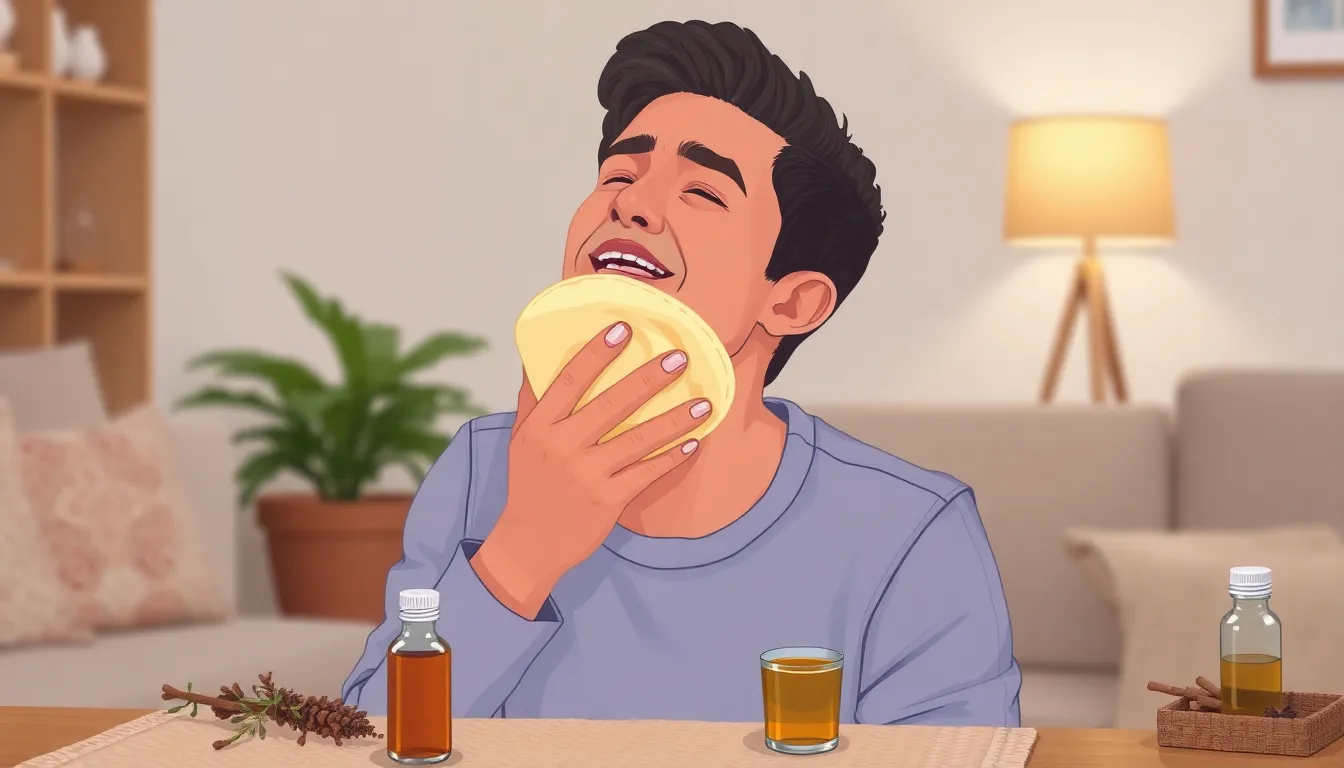Table of Contents
ToggleTooth pain from clenching can feel like a tiny jackhammer going off in your mouth. It’s that unwelcome reminder that stress and anxiety can manifest in the most annoying ways. If you’ve found yourself grinding your teeth like a woodchipper on overdrive, you’re not alone. Many people experience this discomfort, and the good news is there are ways to kick that pain to the curb.
Understanding Tooth Pain From Clenching
Tooth pain resulting from clenching can feel intense and disruptive. Individuals often experience discomfort linked to stress and anxiety, making it essential to understand the underlying factors.
Causes of Tooth Pain
Teeth grinding, or bruxism, primarily causes tooth pain due to excessive pressure on teeth and jaws. Grinding occurs often during sleep or moments of heightened stress. Muscle tension builds in the jaw, leading to inflammation around tooth roots. This inflammation contributes directly to pain sensations. Poor alignment of teeth may also trigger clenching, exacerbating discomfort. Understanding these causes helps individuals address the problem effectively.
Symptoms of Clenching
Recognizing the symptoms of clenching is crucial for timely intervention. Many individuals report jaw soreness or stiffness after waking. Tooth sensitivity to hot or cold substances frequently occurs. Headaches, particularly in the morning, often result from muscle fatigue. Earaches, though less common, can also arise from strained jaws. Noticing these symptoms helps in identifying bruxism early, enabling better management of tooth pain.
Home Remedies for Tooth Pain Relief

Tooth pain from clenching has several home remedies that help alleviate discomfort. Utilizing these methods may provide significant relief.
Warm and Cold Compresses
Warm compresses offer soothing relief by relaxing the jaw muscles. Placing a warm towel on the affected area for 15 to 20 minutes can reduce tension. Cold compresses numb the pain and reduce inflammation. Applying a cold pack every 10-15 minutes can help manage swelling and reduce throbbing. Alternating between warm and cold compresses can maximize benefits. Consistent application may lead to improved jaw comfort and a reduction in tooth pain.
Herbal Remedies
Herbal remedies provide a natural approach to tooth pain management. Clove oil contains eugenol, known for its analgesic properties. Rubbing a small amount on the painful area can offer immediate relief. Peppermint tea acts as a gentle numbing agent, providing comfort to sore gums and teeth. Additionally, chamomile tea has anti-inflammatory effects that help reduce pain and irritation. Incorporating these herbs into daily routines may enhance overall oral health while addressing clenching-related discomfort.
Professional Treatment Options
Various professional treatment options exist for tooth pain from clenching. These methods help alleviate discomfort and address underlying issues effectively.
Dental Splints and Night Guards
Dental splints and night guards provide excellent support for individuals who clench their teeth. These custom-made devices fit over the teeth and act as a barrier, reducing pressure during clenching episodes. Night guards offer protection while sleeping, preventing further tooth wear and helping muscles relax. Many dental professionals recommend this option to patients experiencing significant pain due to bruxism. Using guards consistently may lead to a noticeable reduction in symptoms.
Physical Therapy
Physical therapy presents another solution for addressing tooth pain related to clenching. Therapists often guide patients through exercises targeting the jaw muscles and reducing tension. These specialized techniques can help improve flexibility and strength in the jaw, ultimately easing pain. Additionally, therapists may use modalities such as heat, cold therapy, or ultrasound to relieve muscle soreness. Regular sessions can foster a better understanding of jaw mechanics and encourage healthier habits, leading to significant pain relief.
Lifestyle Changes to Prevent Clenching
Making lifestyle changes can significantly reduce teeth clenching and alleviate related tooth pain.
Stress Management Techniques
Implementing stress management techniques provides effective relief from clenching. Practices like deep breathing exercises encourage relaxation and reduce anxiety. Mindfulness meditation helps focus the mind, alleviating stress that contributes to muscle tension. Regular physical activity, such as walking or yoga, releases endorphins, enhancing mood and reducing stress. Keeping a journal allows individuals to express their thoughts and feelings, which can lessen anxiety levels. Engaging in hobbies that bring joy provides a welcome distraction from daily stressors.
Good Sleep Hygiene
Establishing good sleep hygiene proves crucial for preventing clenching at night. Creating a consistent sleep schedule helps regulate the body’s internal clock. A relaxing bedtime routine, such as reading or listening to calming music, promotes better sleep quality. Keeping the bedroom cool, dark, and quiet encourages a restful environment. Limiting screen time before bed reduces blue light exposure, which may disrupt sleep patterns. Avoiding caffeine and heavy meals close to bedtime supports healthier sleep, minimizing nighttime clenching incidents.
Tooth pain from clenching can be a frustrating experience but relief is achievable through various methods. Home remedies like warm and cold compresses along with herbal solutions can provide immediate comfort. Seeking professional treatments such as dental splints or physical therapy can also address the root causes and prevent further damage.
Incorporating stress management techniques into daily life is essential for long-term relief. By prioritizing relaxation and maintaining a healthy sleep routine, individuals can significantly reduce the likelihood of clenching. Taking these steps not only alleviates pain but also promotes overall oral health and well-being.







